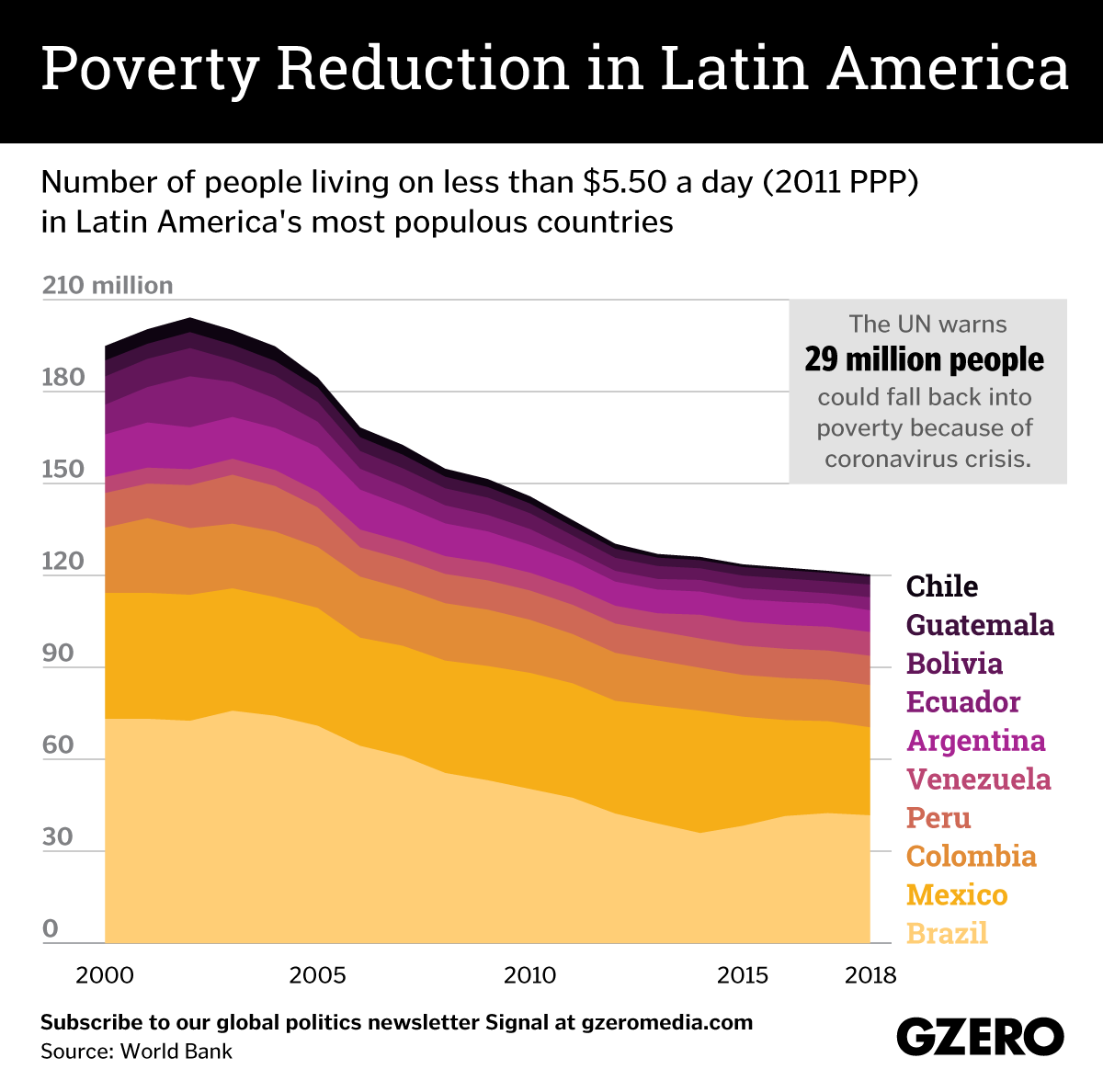The Graphic Truth: Poverty Reduction in Latin America
April 29, 2020
A UN official warned this week that as many as 29 million people across Latin America and the Caribbean could be plunged into poverty because of the economic pain caused by the coronavirus. Latin America's economy, which is expected to contract 5.2 percent this year, will be hit far harder than any other region, and could take up to a decade to repair. This would undo many of the social and economic gains of the past two decades that have pulled millions out of poverty. Here's a look at the number of impoverished people in Latin America's most populous countries over the past two decades – a glimpse of what's at stake.
